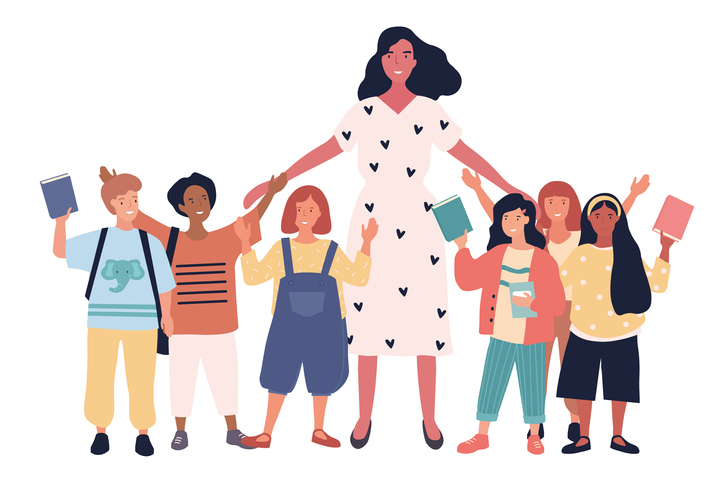One thing that the pandemic has shown us is that child care is essential, valuable, and skilled labor. But childcare providers have had to fight for basic labor protections and a decent wage. According to Child Care Providers United, the newly recognized union of childcare providers in California, “the median income for these providers is $12 an hour, but some licensed providers make as little as $5 an hour per child. Fifty-eight percent rely on government assistance programs to support their families.” Providers are overwhelmingly women of color and immigrants, and the state has failed to provide the support necessary to make childcare a living wage job.
Earlier this year, childcare providers and early childhood educators in California made history when they voted to form Child Care Providers United, a new union that will represent roughly 45,000 workers across the state. Their victory was the result of a 17-year effort led by three locals — AFSCME-United Domestic Workers 3930 and SEIU Locals 99 and 521 — with the support of community organizations. As Jovanna Hernandez, one of the organizers on the campaign, recounted, “This triumph was paved by a broad ecology of organizations, from Parent Voices to Local 1000 parent union workers showing up at the capital for our events.”
How did they do it? By organizing one provider at a time to build a powerful movement of workers who, despite not sharing a workspace or even an employer, came to see themselves as part of a community with shared challenges and aspirations.
In this series, we talk with three of the organizers on the campaign — Jovanna Hernandez, Miren Algorri, and Valeska Sanchez — about how they built an organization that delivered a whopping 97 percent victory in the midst of a global pandemic. These organizers are part of a long and often overlooked tradition of Black and brown women fighting for racial and economic justice in the caring economy. Keith Kelleher recounts the first campaign to organize home childcare providers in the 1990s, reminding us that this recent victory is the latest chapter in a long movement. Kelleher also interviews Pam Franks, a longtime childcare provider and organizer, about the early days of childcare organizing in Illinois.
Running and winning a 17-year campaign is no mean feat, and it offers valuable lessons for organizers about how to build solidarity and sustain momentum even when there seems to be no end in sight. No system is unchangeable. Just as decisions were made to make childcare a low-wage profession, we can fight to change the rules to ensure better benefits and pay. With political will, vision, and organization, we can deliver incredible wins.

